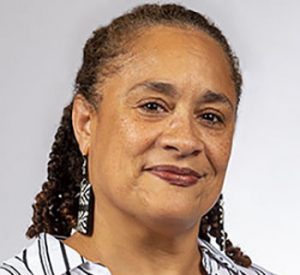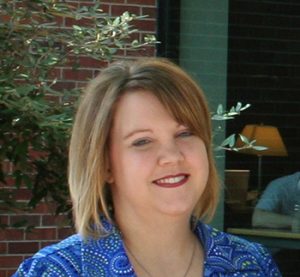Published on
Updated on
As part of each Newsletter, Office of the Provost will highlight one faculty member and one staff member who we want to thank for their extraordinary service to the Mizzou community. We applaud their dedication to helping others, especially during a semester that presented unprecedented obstacles and challenges.

April Langley, Chair, Department of Black Studies, Associate Professor, English
Langley is also an affiliate in the departments of Religious Studies and Women and Gender Studies.
Looking back at recent semesters, Langley says, “Black Studies has dealt with at least two major challenges—the double pandemic of anti-blackness and COVID-19. Both have impacted our mission and those students, staff, faculty, and communities we serve. The deaths of Breonna Taylor, Layleen Polanco, Tony McDade, and most viscerally George Floyd have traumatized and brought to the surface underlying issues right here at Mizzou”.
How did her department tackle these dual challenges? She says, “While it might not be accurate to say we have ‘overcome’ these challenges because many of them we are still dealing with, it would be correct to say that we as a department have brought our interdisciplinary strengths to the table as a way to address challenges. Our faculty and staff came together to talk about how we could help, and we asked students what their needs were, and we are fortunate to have an amazing department administrator and director of undergraduate study as well as faculty whose actions demonstrate they are invested in being a village of those who are genuinely concerned.”
Some of the ways they did this were: to offer all of the core courses in the Black Studies program in Fall 2020 to help students achieve their requirements in one semester and held the “Black and Proud at Mizzou” event in July on Zoom in response to student comments on #BlackAtMizzou, which the department hopes to continue annually.
What has emerged from this period in time? Langley says, “…the idea of community must be more than any idea, or one set of rules or circumstances that bring us together, rather reactively, when incidents create an urgency. Community, at least the way I see it, is about common unity. It is a coming together to create the place, space, and worlds we imagine our best selves inhabiting, not in a moment, but as a viable and ongoing movement. What we’ve managed to accomplish, our students, staff, faculty, administrators, and those communities we serve, in COVID should provide wonderful breadcrumbs that empower us through the best as well as the worst of times.”

Robin K. Nichols, Senior Communications Coordinator in the Dean of Journalism’s office
According to Lynda Kraxberger, Associate Dean for Undergraduate Studies and professor in the School of Journalism, “Her professionalism and institutional knowledge have contributed to smooth operations at times when our lives have been anything but smooth. Most impressive has been her constant caring about the student experience – as she oversees all details around graduation celebrations, as well as our team of student ambassadors who meet with prospective students and their parents.”
Nichols says that, in lieu of in-person recruitment events, “My co-worker, Jack O’Neill, and I wrote 500 handwritten cards to prospective students to make contact and offer ourselves as a resource as well as point them to many virtual resources that were available. Our Journalism Ambassadors were eager to continue to help with recruitment and wrote emails and took part in Zoom sessions in order to reach prospective students. It was very fulfilling to see many of those students that we reached out to join us this fall.”
In addition, Nichols works closely with the Office of Admissions. Kraxberger says, “She is always considerate of the feelings of students and those who reach out to our office in person, by phone and now Zoom. Throughout the pandemic she has maintained remarkable positivity and patience, while continuing to promote and encourage our student teams and colleagues throughout the school.”
What’s come out of this experience? “The challenges in communication that the pandemic created (or revealed!),” Nichols says, “have reminded me to be even more patient and considerate. At the same time, we need to be kind to ourselves.” While working from home, her co-workers met for a Zoom Coffee Break so they could discuss problems and avoid feeling isolated. She says, “COVID-19 has brought feelings of grief and survivor’s guilt but those feelings don’t invalidate our feelings of gratitude, and it is a great quality to be able to empathize with our friends and Mizzou family.”
Thank you to all of our faculty and staff who have tirelessly gone above and beyond to help others in our campus community during the past few months. It truly demonstrates the spirit of “Tigers Helping Tigers” as we look towards a new year.